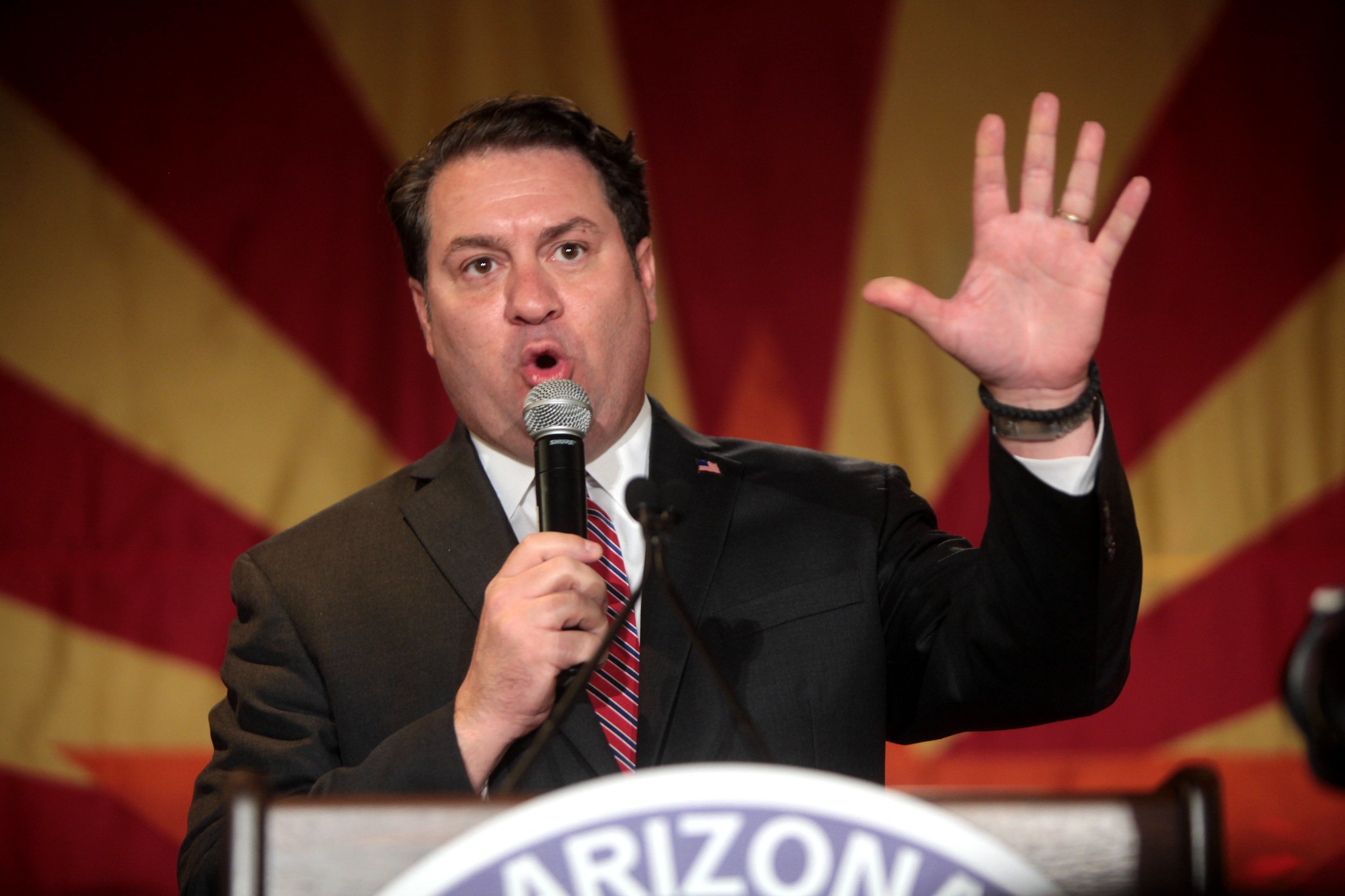Almost All Abortions Are Now Banned in Arizona
A judge allowed a Civil War-era law to go back into effect today. The law requires two to five years in prison for people who provide abortions, except to save the life of the pregnant person.

Virtually all abortions are now banned in Arizona after a judge allowed a Civil War-era law to go back into effect today. The 1864 law bans abortion except to save the life of the pregnant person and mandates two to five years of prison time for people who provide abortions.
The law has not been in effect since 1973, when the Arizona Court of Appeals placed an injunction on the law following the U.S. Supreme Court’s ruling in Roe v. Wade, which protected the constitutional right to abortion.
After the current Supreme Court overturned Roe in June, Arizona Attorney General Mark Brnovich filed a motion in Pima County Superior Court, where the injunction originated, requesting that a judge allow the ban to take effect once more. Pima County Superior Court Judge Kellie Johnson ruled in favor of Brnovich and against Planned Parenthood of Arizona, which contended that a total abortion ban should not go into effect because Arizona lawmakers have spent decades passing other laws regulating abortion and did not intend to outlaw abortion altogether.
The law will have devastating consequences for people in Arizona. It will also affect people in neighboring states, as Arizonans have already been traveling to California and New Mexico to get abortions, creating longer wait times at clinics.
People of color, poor people, and other marginalized communities will be harmed the most by the ban, which will force people to travel long distances to have a legal abortion or obtain abortion pills illegally. Traveling to another state often involves finding childcare, taking time off work, and paying for gas, food, and lodging—not to mention the cost of the procedure itself. These costs can prevent people from being able to get an abortion at all, leaving them shackled to a pregnancy they do not want or can’t afford.
Abortion rights advocates are also concerned that the law could be used to criminalize people who help others obtain abortions. The full text of the 1864 ban states, “A person who provides, supplies or administers to a pregnant woman, or procures such woman to take any medicine, drugs or substance, or uses or employs any instrument or other means whatever, with intent thereby to procure the miscarriage of such woman, unless it is necessary to save her life, shall be punished by imprisonment in the state prison for not less than two years nor more than five years.”
Eloisa Lopez, executive director of the Abortion Fund of Arizona, told the Arizona Agenda in August that she worries prosecutors could even use the 1864 ban to criminally charge people for providing financial assistance for abortions or driving people to their appointments. Since the Supreme Court overturned Roe in June, the Abortion Fund of Arizona has spent about $40,000 helping people get abortions—including facilitating transportation, childcare, and lodging arrangements.
Competing abortion laws and misinformation from Republican lawmakers caused chaos in Arizona in the months following the Supreme Court decision overturning Roe. Immediately afterward, Senate Republicans falsely stated that the 1864 law banning all abortions had been reinstated, “effective immediately.” A few days later, on June 29, Arizona Attorney General Brnovich announced that he was filing to lift the injunction on the 1864 ban, but also said in the same statement that the law was “back in effect,” even though the statute did not go back into effect until today.
Many health care clinics stopped providing abortions for a time due to the lack of clarity about the legality of abortion in Arizona. Some clinics resumed services after a judge enjoined a separate anti-abortion law: the state’s fetal personhood statute, which gives embryos and fetuses at all stages of development the same rights as people. On July 11, a federal district court judge blocked a part of that “personhood” statute that could have been used to criminalize people for providing or obtaining abortions.
Now providers will need to suspend abortion services again or face severe criminal consequences. The top prosecutor for the largest county in the state, Maricopa County Attorney Rachel Mitchell, has already expressed her intention to investigate prosecuting people for abortions if and when police submit cases to her.
“My role is to enforce the law and to look at cases as they come to me and make a decision and follow the ethical charging standards that we apply to every case, which is the reasonable likelihood of conviction,” Mitchell said in June.
Mitchell’s jurisdiction includes Phoenix and approximately 4.5 million of Arizona’s 7.2 million residents. She is up for election this November. Her challenger, Democrat Julie Gunnigle, has vowed not to prosecute abortions.
“Today’s ruling is a devastating decision and marks a dark day in Arizona’s history,” said Jennifer Allen, executive director for the ACLU of Arizona. “No one should be forced to carry a pregnancy to term against their will. By allowing this archaic law to go into effect, Arizona has put the lives of pregnant people at risk and will send doctors to prison for doing what’s best for their patient.”
“Our vote now holds more power than ever,” Allen continued. “Elected officials, like county attorneys, have the power to exercise their prosecutorial discretion and decline to go after physicians. We encourage voters to elect those who will do everything within their power to protect abortion access.”
This is a breaking story and it may be updated. You can find a list of resources and ways to help here.
